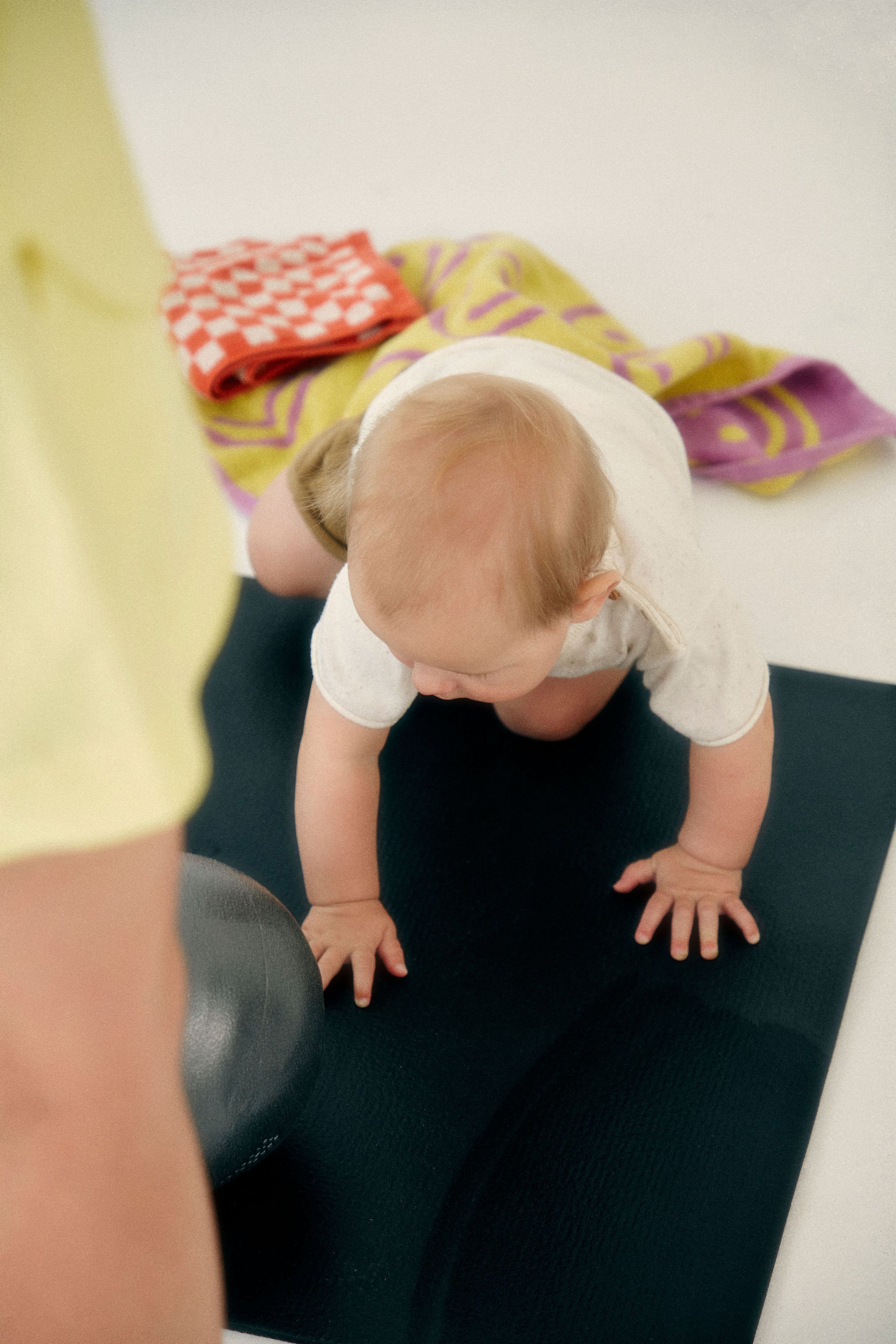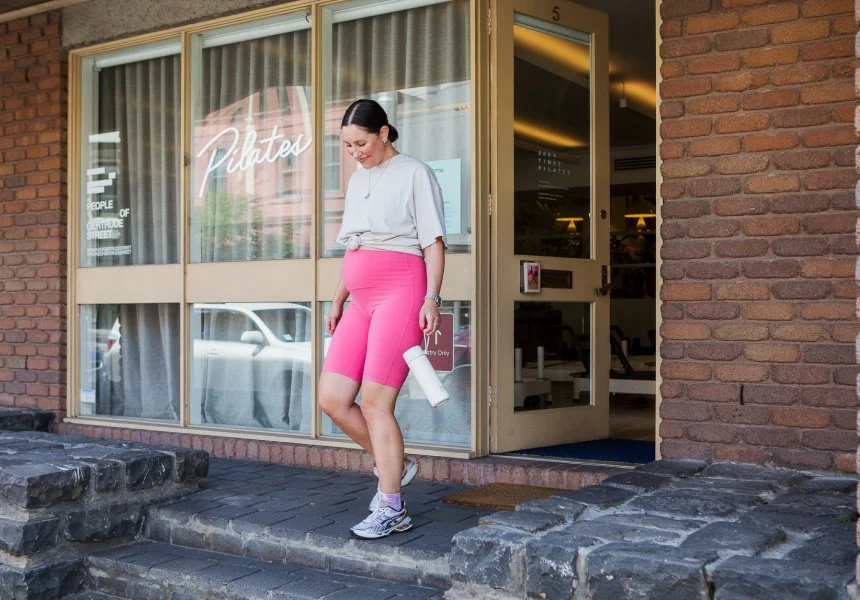Pregnancy + Pilates
WE WANT YOU TO FEEL SUPPORTED AND EMPOWERED
Here’s the low down on your movement journey during pregnancy.
Gowing a human?
You’re welcome here!
If your pregnancy is uncomplicated and you feel good to move, you can join any of our classes throughout your pregnancy.
We use evidence and up-to-date guidelines to inform everything we do at Good Times, so you’re always in good and supporting hands when you move with us. We have special props to help support you while you move, and our skilled teachers can easily offer prenatal specific options and alternatives if you need on the day.
Pregnancy + Pilates
FAQS
-
General exercise, like Pilates is highly recommended throughout pregnancy to help get you ready for birth, as well as help with postpartum recovery.
Even if you’ve never done Pilates before you became pregnant, Pilates is a great form of exercise to start up during your pregnancy. There are many benefits for both parent and baby, these include:
Lower risk of gestational diabetes:
Physical activity reduces blood glucose levels. Exercise causes muscle cells to increases glucose consumption. It also makes muscle cells more sensitive to insulin, which means they continue to take up glucose after exercise.Reduced back and pelvic pain:
Regular exercise, like Pilates, helps prevent joint stiffness, muscle tightness and improves blood circulation by strengthening and stretching muscles and ligaments of the back and pelvis.Boost your mood:
Endorphins released during exercise have a positive impact on mental health. Evidence suggests physical activity during pregnancy is associated with improved mood and mental wellness, and reduced stress and anxiety throughout your pregnancy, as well as a lower risk of postnatal depression.Decreased risk or pre-eclampsia:
A complication characterised by high blood pressure that usually occurs around 20 weeks. Evidence suggests that exercising early on in your pregnancy reduces pre-eclampsia risk by 43%.Heart health:
Evidence shows that people who exercise for at least 30 minutes a day, 3 times a week have lower heart rates during pregnancy. Babies have better heart rate variability, indicating that they have better cardiovascular health from the get go.Better sleep:
It is well known that regular exercise helps to improve your sleep, which can inversely impact your mood and pain tolerance.More energy:
Regular exercise also pays a role in improving energy levels, which is especially important in mitigating pregnancy related fatigue.Improved labour and recovery:
While childbirth varies for everyone, there is growing evidence to suggest that fitter people have easier labours. This could be due to baby’s birth weight, improved flexibility, improved strength and endurance.The most important thing about exercise during pregnancy is doing physical activity that feels good for you and that you enjoy, so that you’ll want to do it regularly.
-
The Physical Activity Guidelines during pregnancy remain the same as for the non-pregnant population. You should be aiming for 150 to 300 minutes of moderate intensity aerobic exercise spread out throughout the week, ideally on most days. In addition 2 to 3 sessions of strength training per week.
Of course, this can be easier said than done and depending how you feel throughout your pregnancy.
-
If you’re new to Good Times Pilates and Pilates in general, we recommend attending our Good Moves class to start. All our classes are open-level, your teacher will offer you all the options you need throughout class to support your movement practice.
-
As stated in the Physical Activity Guidelines, the warning signs to stop exercise and seek medical attention include:
Chest pain
Unexplained shortness of breath
Dizziness, feeling faint or headache
Muscle weakness
Calf pain, swelling or redness
Sudden swelling of the ankles, hands or face
Vaginal bleeding or amniotic fluid loss
Decreased fetal movement
Uterine contractions or pain in the lower back, pelvic area or abdomen (potentially indicating pre-term labour).
Please let you teacher know if you experience any of the above.
-
Depending on the stage of your pregnancy, and your individual preferences there are some things to be mindful of while doing any kind of exercise while pregnant.
Throughout pregnancy:
Limit your risk of contact and/or collision — like ball sports and water sports.Limit your risk of falling. Activities that require high levels of balance, coordination and agility — like getting up on a ladder, horseback riding, and off-road cycling.
Limit significant changes in pressure — like sky diving and scuba diving.
Super heavy lifting
Limit exposure to high temperatures — like sauna, stream rooms, hot Pilates/Yoga
Second + third trimester:
As the uterus grows, the weight of the uterus may obstruct venous return (rate of blood flow back to the heart). Therefore, pregnant people in the second and third trimesters should avoid performing exercises laying on their back for prolonged periods of time.At this stage of your pregnancy, your teacher will offer you alternatives to lying on your back and support with the pregnancy wedge.
Always listen to your body and let your teacher know if something doesn’t feel good for you on the day so they can offer an alternative.






